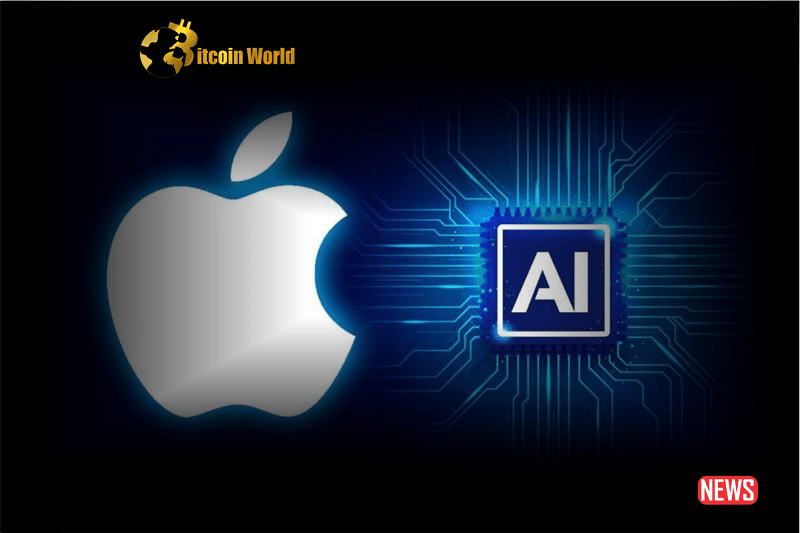The AI revolution is here, folks, and it’s absolutely electrifying! ChatGPT, OpenAI’s brainchild, has taken the world by storm, showing us just how powerful artificial intelligence can be. But while everyone’s marveling at ChatGPT’s abilities, there’s another tech titan quietly racking up the wins: Apple. They might not be building the AI models themselves, but they’ve certainly found a prime spot at the AI revenue table.
ChatGPT Lands on the iPhone: A Match Made in the App Store
When OpenAI launched the iPhone app for ChatGPT, it was a big moment. The app shot straight to the top of the App Store charts, becoming the number one free app in no time. Apple even gave it their stamp of approval, listing ChatGPT as a “must-have” in their “Essentials” category. Think of it as the tech world’s red carpet rollout!
The Not-So-Secret Ingredient: The “Apple Tax”
Now, here’s where things get a little…taxing. Apple’s well-known 30% cut on all iOS subscriptions, often referred to as the “Apple Tax,” is a recurring point of contention. Remember the buzz around NFTs? Crypto enthusiasts felt the pinch when in-app NFT purchases became significantly more expensive due to this fee. Despite the ongoing debate, OpenAI decided to play by Apple’s rules, opting for the familiar in-app purchasing system instead of directing users to a separate website for subscriptions.
What Does This Mean for ChatGPT Plus Users?
- For every $20 monthly ChatGPT Plus subscription purchased through the iPhone app, Apple pockets $6.
- This contribution significantly boosts Apple’s services revenue.
- While convenient for users, it adds a premium to the subscription cost.
Apple’s AI Strategy: Profitability Meets Integration
Apple’s CEO, Tim Cook, has made it clear: AI is in Apple’s future. They’re committed to weaving AI into their products, and, let’s be honest, ensuring it’s a profitable venture. Despite lingering concerns about data privacy – a hot topic when it comes to AI – ChatGPT remains readily available on the App Store. This availability has undeniably contributed to Apple’s impressive services revenue, which recently hit a record-breaking $20.8 billion. That’s a hefty slice of the pie!
Is the “Apple Tax” Fair Game? The Legal Battles
The “Apple Tax” isn’t without its challenges. The company has faced legal scrutiny, including a U.S. federal appeals court ruling that found Apple in violation of California’s Unfair Competition Law for blocking alternative payment methods. However, OpenAI seems to be sticking with Apple’s integrated payment system, likely prioritizing the smooth and familiar user experience it provides.
Key Legal Developments:
| Event | Implication |
|---|---|
| U.S. Federal Appeals Court Ruling | Found Apple violated California’s Unfair Competition Law regarding payment methods. |
| Apple’s Victory in Epic Games Antitrust Case | A significant win for Apple, upholding their App Store model in that specific case. |
| EU Legislation on Third-Party App Stores | Potential future requirement for Apple to allow alternative app stores, potentially impacting their revenue model. |
The Future Landscape: Who Holds the Power?
This situation highlights the fascinating interplay between AI innovators like OpenAI, tech giants like Apple, and the regulatory bodies trying to keep things balanced. Right now, Apple seems to be in a strong position, leveraging the groundbreaking work of others to boost their own bottom line, even amidst ongoing debates about fairness and competition.
What’s Next in the AI Arena?
The AI revolution is still in its early stages, and everyone is vying for a piece of the action. It’s a dynamic landscape, and how Apple and other tech giants navigate the complex intersection of AI innovation, profit motives, and evolving regulations remains to be seen. Will the “Apple Tax” remain a standard? Will new legislation shift the balance of power? These are the questions shaping the future of the tech world.
One thing’s for sure: the AI revolution is just getting started, and the strategies of companies like Apple will be crucial in determining how this exciting new era unfolds. Keep watching this space – it’s going to be an interesting ride!
Disclaimer: The information provided is not trading advice, Bitcoinworld.co.in holds no liability for any investments made based on the information provided on this page. We strongly recommend independent research and/or consultation with a qualified professional before making any investment decisions.




